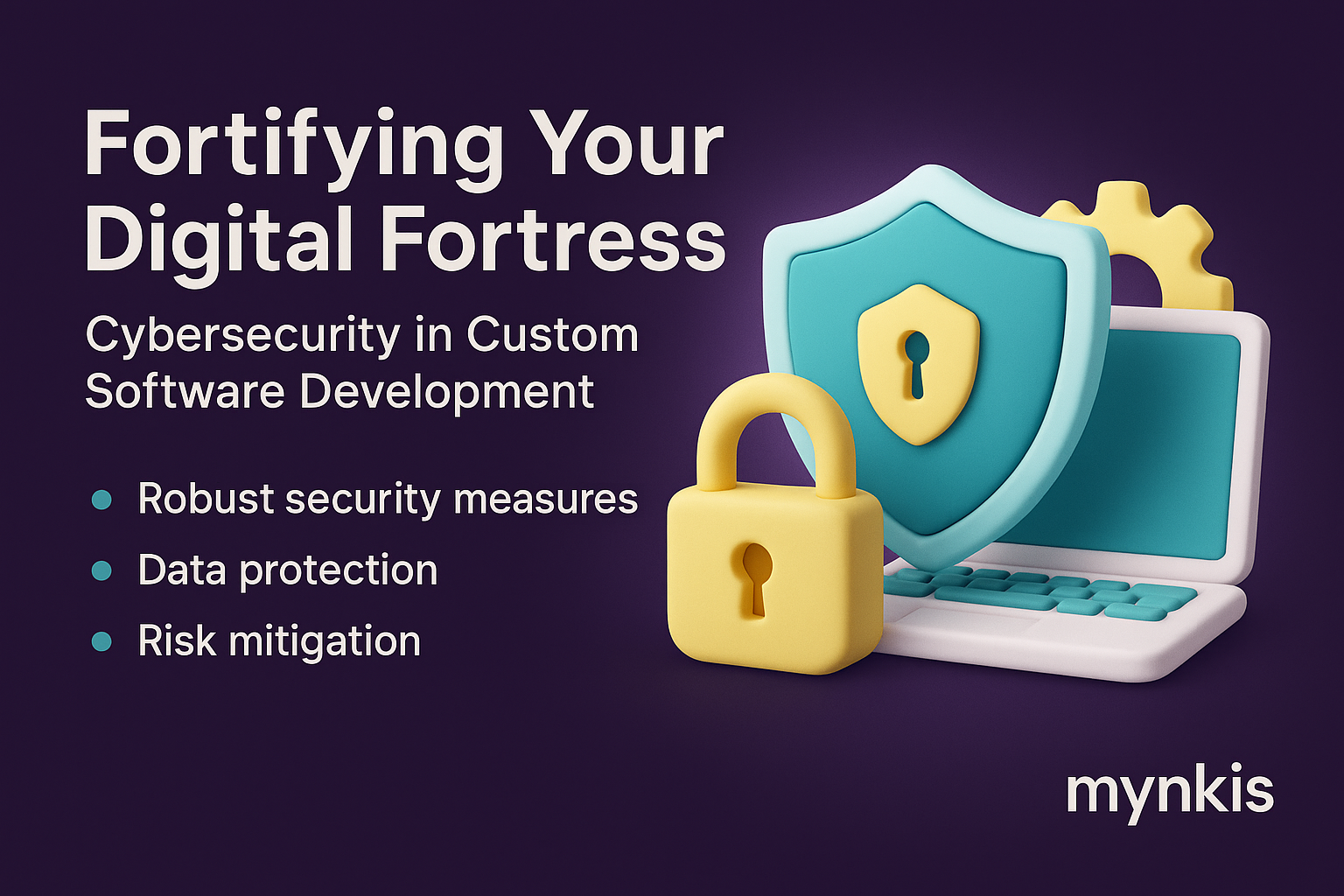Schedule a Demo
In my work with retail companies looking to expand their online presence, I've witnessed how critical cybersecurity has become. With every retailer striving for not just an aesthetically pleasing but also a secure online shopping platform, the focus on custom software development integrates seamlessly with a robust security framework. Retailers can now rest assured that their online ventures not only appeal to their customers but also prioritize the safeguarding of customer data. Exploring the symbiotic relationship between custom development and cybersecurity opens up a world of possibilities for establishing digital trusts
The digital landscape, heralded with innovation, hosts an array of threats varying from data breaches to malicious injections and DDoS attacks. I recall a time when working with a cybersecurity analyst revealed that even the smallest oversight can lead to vulnerabilities in a system. Your clients deserve a retail platform armored against such threats. Recognizing and managing these risks is crucial to ensuring your customers can shop securely, keeping their personal and financial information safely away from prying hands.
Secure software development isn't just about applying security after the fact; it must be ingrained in the development process from the get-go. Following the principle of security-by-design, I've learned the significance of integrating security measures at the core of custom software development. This proactive approach not only preserves the design's authenticity but also fortifies it against intrusions.
I've guided many a retailer through the selection process of robust development platforms and security tools. Dark Reading, for instance, reviews top security trends and could be an invaluable resource in choosing what tools work best. Ensuring your software development arsenal includes recognized, highly-rated tools means you're on solid ground, building from a place of security rather than vulnerability.
Just as physical storefronts perform inventory checks, so must digital enterprises run regular audits of their security posture. In my experience, having an external firm review the system for potential weaknesses can highlight issues before they're exploited by nefarious entities. Continuous vigilance in this fashion allows your custom software not only to meet but exceed baseline security standards.
In the realm of cybersecurity for retailers, encryption plays a starring role. A retailer I worked with had their customers' payments processed via a bespoke payment gateway whose security leaned heavily on state-of-the-art encryption standards. Keeping ahead of potential breaches requires diligent upgrades to these systems as threats evolve, ensuring robust enterprise web solutions.
Software can be as secure as Fort Knox, but without well-informed developers and a knowledgeable management team, a significant risk persists. Emphasizing security best practices through internal workshops or enlisting the likes of organizations such as the National Institute of Standards and Technology (NIST) for training sessions cultivates a company culture where security is everyone's responsibility.
People can often be the weakest link in the security chain. Instilling a strong sense of awareness within the company prevents common blunders like falling prey to phishing scams or accidently compromising data protection measures. By having robust user access controls and privileged access management, retailers protect against human error just as vigorously as against mechanical vulnerabilities.
Just as important as security to the discerning entrepreneur is innovation. Its brilliance must be matched by cautiousness. In combining aesthetic appeal with top-tier cyber-defense, retailers achieve a safe sanctuary for online transactions - offering a truly modern, sleek shopping platform. Based on the observed trends and innovations from sources like Infosecurity Magazine, we ascertain that embracing new secure technologies significantly benefits your end-users.
Neglecting secure custom software development practices can lead to disastrous monetary consequences, both from inflicted damage and loss of consumer trust. Tales echo through the business networks about the times where small retail ventures went under or had to pay hefty fines due to data breaches that were avoidable with proper security due diligence.
When equipping an online store for the future, a forward-thinking retailer cannot afford to ignore evolving cybersecurity methods. Keeping on pace with advancements, such integrated solutions such as secure payment protocols offer not just today's protection but maximize long-term data integrity.
No online enterprise wants to deal with a data breach, but preparing a cybersecurity incident response plan is most professional management. In drawing from experiences shared by Cybersecurity Ventures, it is imperative that companies especially have protocols ready to swiftly mitigate damage and regain consumer faith if the catastrophic happens.
Aligning with secure, established organizations for elements of your cybersecurity need matches wellness some organizations' growing need for outside innovation and expertise, which reinforces your standing Trust SA Institute recognizes the onset arrangements can fortify and expand corpsas capabilities if selected with cumbr />
